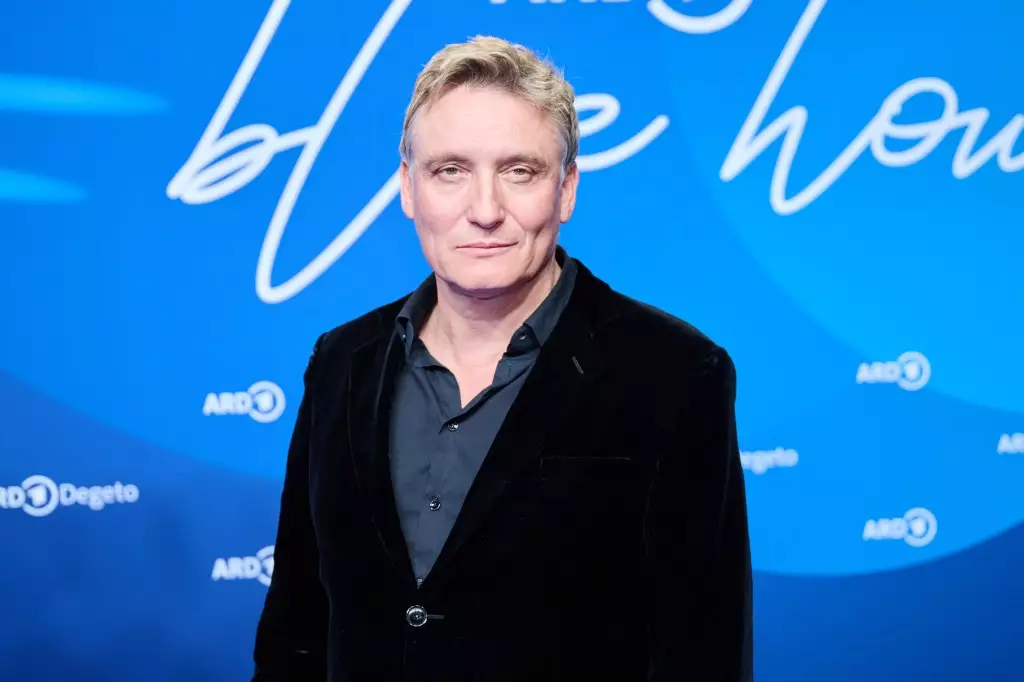In an era where the creative arts intermingle with deeply personal and historical turmoil, Oliver Masucci’s experiences while filming *The German* stand as a testament to the resilience required of artists. Engaging with the harrowing legacy of figures like Josef Mengele, known infamously as the “Angel of Death,” Masucci found himself not only revisiting a dark chapter in history but also navigating a contemporary crisis marked by the ongoing Israel-Hamas conflict. As production unfolded, Masucci described an environment steeped in dual traumas—the weight of the narrative he portrayed and the real-life chaos encircling the crew, an experience that profoundly impacted both his performance and psyche.
The Burden of Artistic Expression
Masucci reveals a stark connection between his character, Uri, and the socio-political landscape that surrounded him during filming. Uri, a conflicted protagonist deeply embedded in the aftermath of World War II, parallels the emotional upheaval that Masucci grappled with while rockets fell in the background. The actor emphasized that this shared sense of trauma became a catalyst for his portrayal, almost mirroring the character’s internal struggle to move beyond his own painful past. “I tried to stay focused,” he said, revealing just how intertwined an artist’s environment can become with their performance. In this instance, Masucci’s dedication became a type of protest—an assertion of his belief in history’s complexities, a stance against reductive narratives perpetuating division.
Comedy and Conflict: The Role of Humor
Notably, one of the most poignant moments Masucci shared was when he reached out to the crew on the day of his departure, only to be advised against consuming news and instead suggested to “open a bottle of wine.” This snapshot captures not only the absurdity of the situation but also speaks volumes about the coping mechanisms people adopt in crises. The juxtaposition of the grim subject matter of the series and the lightheartedness suggested by his colleagues paints a vivid picture of artistry in distress—a balancing act between storytelling and survival.
The Educational Challenge of Language
While grappling with real-world circumstances, Masucci also faced the formidable task of learning Hebrew for his role—an endeavor complicated by the need to perform not just in a foreign tongue but through the raw feelings embedded within it. The daunting transformation from Hebrew script to German phonetics required a mental agility that few could fathom, underscoring the lengths to which actors must sometimes go to inhabit their roles authentically. Masucci reflected, “I kept saying this wasn’t possible,” but the insistence of his team drove him to rise to the occasion. This struggle resonates with audiences, as it mirrors the broader themes of endurance, perseverance, and ultimately, resilience that art, in all its forms, seeks to communicate.
From Shadows to Stardom: The Impact of *Dark*
For Masucci, the visibility gained from Netflix’s *Dark* has been transformative, propelling his career into the international spotlight. He noted that the global shift in viewing habits—away from strictly native languages—has created opportunities for actors and stories to traverse borders. His comment about being recognized as “that guy from *Dark*” illustrates how powerful a single project can be in shaping an actor’s trajectory. The success of non-English series has sparked a renaissance in storytelling, promoting diverse narratives that challenge cultural boundaries.
The Role of Narrative in Healing
Through *The German*, Masucci not only relays the tale of an individual navigating a fractured identity but also engages with the ongoing discourse surrounding historical memory and its impact on contemporary society. His journey through the emotional labyrinth of both character and context invites audiences to reflect upon their own histories, fostering a greater understanding of how the past shapes present realities.
By engaging deeply with a role that confronts both historical atrocity and modern conflict simultaneously, Masucci attains significance that extends beyond performance; he advocates for the importance of storytelling as a means of resilience and connection amidst chaos. His work exemplifies how art can become a vehicle for dialogue, healing, and understanding in a world fraught with division and strife.


Leave a Reply